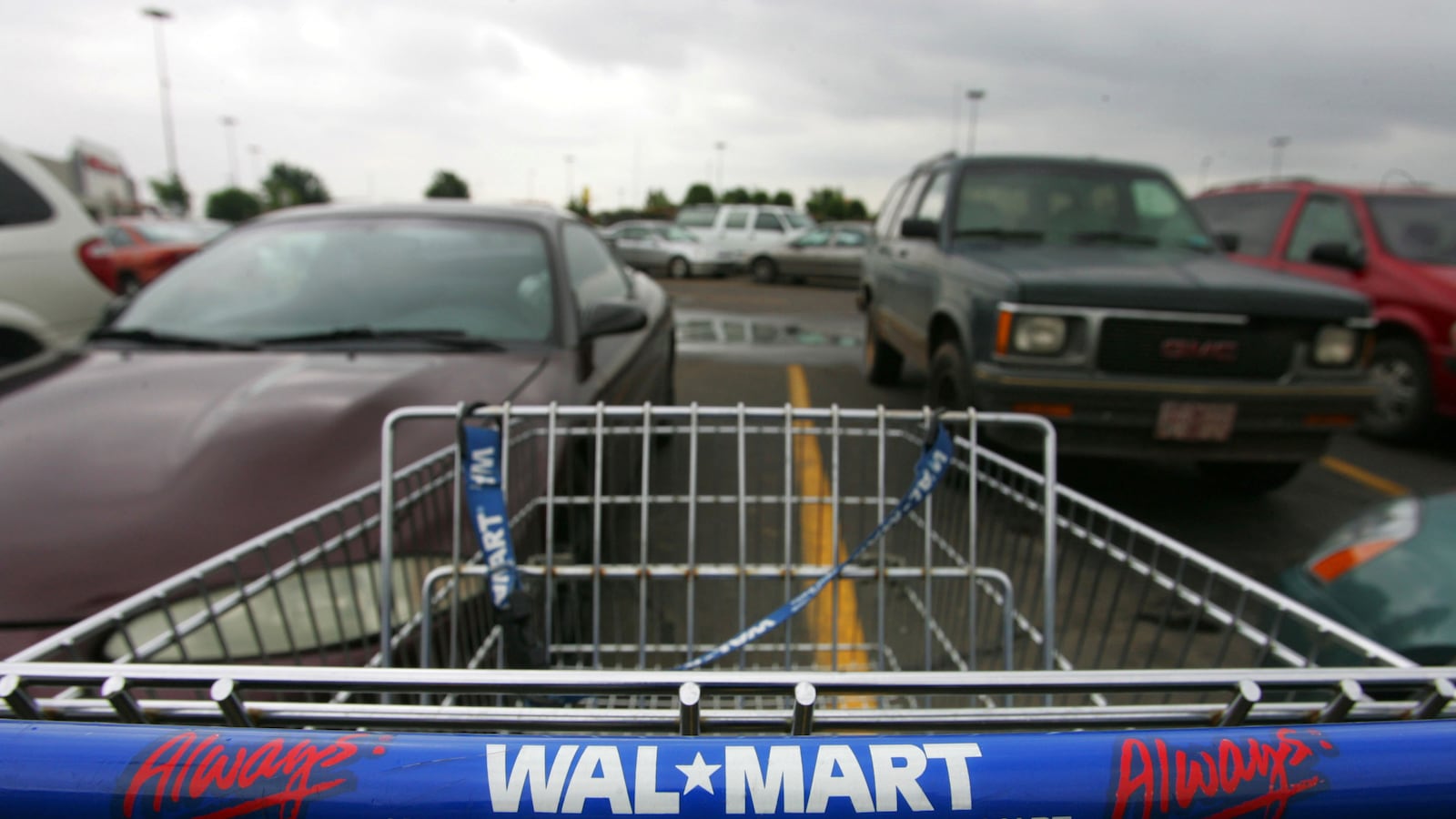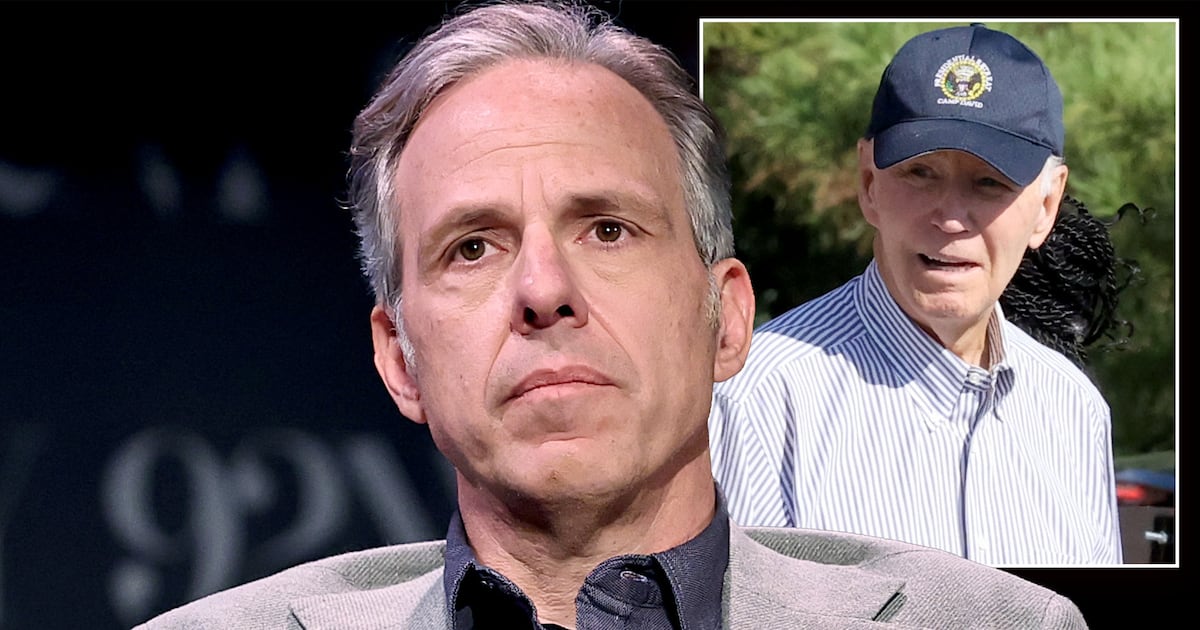Dominic Ware has a scorpion encased in resin on a string around his neck. “Why the scorpion?” I ask when I first meet Ware in the parking lot of a Walmart in San Leandro, California.
“I like the symbolism,” Ware says slyly before reaching for a shopping cart.
I never noticed how many people leave their shopping carts flung about the parking lot until spending time with Ware. Ware works at Walmart as a cart pusher, roaming the lot, collecting the stray wagons and pushing nine or ten at a time together back into the store.
When I met Ware in June, he had worked at Walmart for two years. He was earning $8.60 an hour which would amount to about $17,000 per year if Ware got full-time weeks. But he could rarely get that many shifts. So, after taxes, Ware took home about $400 to $600 per month. A lot of his co-workers can't afford to feed their families. Ware himself was barely getting by. When his girlfriend ended things—declaring, “Love don't pay the bills!”—Ware was left homeless and surfing from couch to couch because he couldn’t afford rent.
Ware is one of the worker-leaders in the nationwide Our Walmart campaign to improve working conditions within the company. A former gang member and drug dealer who turned his life around after a stint in prison, Ware is a natural born leader whose charisma can fill up a room—or a parking lot. Why is he risking his job, day after day, to fight for better wages and benefits for all Walmart workers? “A lot of people here can't take the chance,” Ware says of his colleagues. Then he stops. His head lowers down and the corners of his eyes follow. “And I'm worried that one day my nieces and nephews might have to work here, my kids might have to work here and it would still be the same.”
“Jesus died for all of our sins,” Ware adds. “The worst thing that can happen to me is I lose my job.”
Ware goes to help a customer lift several giant boxes of furniture into the back of her SUV. A badge hanging from the woman's neck indicates she works for government social services. I look around. The San Leandro Walmart occupies a stretch of poverty between San Francisco and Silicon Valley that the tech bubble flagrantly overlooked. Most everyone going into and coming out of the store is black or Latino, with notable exceptions being the white store manager and two men in a monster truck who spend much of my time in the parking lot circling around looking for a big enough space. Meanwhile, police and private security also circle the lot. If Silicon Valley represents the future of America's economy, San Leandro represents the stagnant present. If you can't afford to live, you're probably working at or shopping at Walmart. Or both.
Ware reaches to grab a few carts that have been left just feet away from the corral. Feeling guilty that I've abandoned a shopping cart or two in the past, I sheepishly ask Ware what he thinks about the customers who do so. I'm expecting his charming disposition to crack and become littered with trash talk, but I'm wrong. “People who shop here? They get treated with no respect,” says Ware. “There aren't enough cashiers. We have 18 stalls but only keep four or six open. So the lines are long.” Ware continues: “We only have one working handicapped cart. Yesterday, a lady had to wait an hour because someone else was using it.” In an era of anonymous big box stores, Ware's genuine compassion for Walmart's customers is refreshing. He should be the store manager.
That might seem an odd suggestion given that Ware is leading the protests against Walmart management. But Ware retains a positive vision for the company for which he works. “Walmart could be great,” he says, “if they paid living wage and served community better. It would be beautiful. It would be like the Disneyland of retail.” Ware puts his hands in the air and does a falsetto song and dance of happy customers, turning his 5'8” lanky frame into something fitting a Disney cartoon.
But as cheerful as Ware is, even Disney movies have villains. Does Ware think the top executives at Walmart are evil? “It depends on how you define evil,” Ware says. “Some people look at evil as murderers and killers. I think of evil as doing harm toward others and knowing that you're doing it.” Do the executives know they're harming their workers? They must, says Ware. “It doesn't take a wizard to figure out their associates are in poverty.”
I decide to leave before I get Ware fired, although he doesn't seem scared. “It's all gravy,” Ware says as he shows me a green “RESPECT” bracelet that he constantly wears around his wrist as a member of the Our Walmart campaign.
Less than a month after our interview, Ware was indeed fired. Since then he’s been struggling to find work, getting by “by the grace of God, a strike fund, handouts, and little jobs here and there.” And still staying engaged in the fight to make Walmart work for its workers and our nation’s economy. In November, the National Labor Relations Board found that Walmart had violated the rights of over 117 workers who protested during the Black Friday “shopping holiday” last year, many of whom were fired for speaking up for better wages and working conditions. Maybe Dom will be similarly vindicated someday. In the meantime, as Dom struggles to make ends meet without a job, his fellow Walmart workers still struggle as well. Recently, management at a Walmart in Central Ohio put out boxes seeking food donations “so Associates in Need can enjoy Thanksgiving Dinner.” Christmas isn't looking any more promising for Walmart associates.
Dom hasn’t lost his faith or the scorpion that hangs around his neck. What’s it symbolize? “Strength and passion,” Ware says. “And sexiness.” A broad smile flashes across Ware's face. “You know I got my sexiness going on!” If only the notion of paying workers a fair day’s wage for a hard day’s work were as sexy as Dominic Ware.






